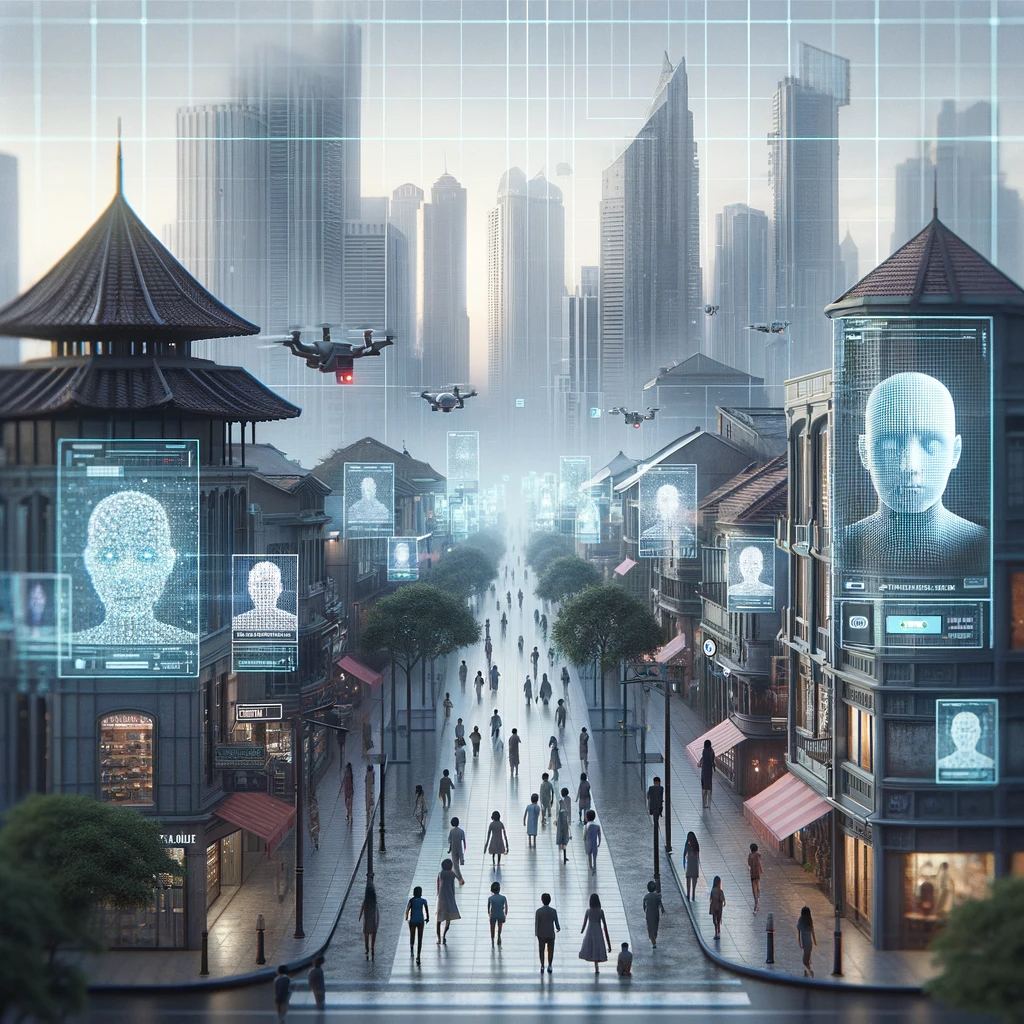As AI technology continues to advance, its integration into urban governance raises questions about its impact on cities and their inhabitants. While AI holds promise for enhancing efficiency and sustainability, it also brings challenges and potential risks.
The rise of AI urbanism
In recent years, the concept of AI urbanism has emerged as a novel approach to urban development and management. Unlike traditional smart cities, which rely on sensor-based data to streamline operations, AI urbanism leverages artificial intelligence to not only quantify but also provide narratives for various urban events and phenomena.
This shift towards AI-driven urban governance is driven by the vast amounts of data generated by city dwellers’ activities. Everything from commuting habits to shopping preferences contributes to the rich dataset that AI systems use to understand and potentially influence urban life.
Predictive policing and ethical dilemmas
One of the significant aspects of AI urbanism is its potential role in predictive policing. AI systems, such as the one developed by US company Palantir, are already employed in several cities to predict where crimes may occur and who may be involved. While the idea of preventing crimes before they happen sounds appealing, it raises ethical concerns.
AI, by its nature, lacks moral judgment. It operates without a sense of right or wrong, making its predictive policing decisions purely data-driven. Recent studies have shown that these AI-driven decisions can result in biased outcomes, disproportionately affecting racial minorities, particularly in housing and real estate sectors.
Environmental implications of AI urbanism
Another aspect that demands scrutiny is the environmental impact of AI technology used in urban settings. AI systems require significant computational power, leading to high energy consumption. This energy-intensive nature of AI technology contributes to carbon emissions and places additional strain on critical raw materials.
While AI holds the potential to enhance sustainability in cities, the actual environmental costs and energy consumption associated with its implementation must be considered. Striking a balance between sustainability goals and AI adoption is essential.
Human responsibility and AI governance
Contrary to science fiction scenarios where AI spirals out of control, it is humans who are consciously entrusting AI with critical decision-making roles in urban governance. As AI technology becomes increasingly integrated into city management, there are instances where entire cities are envisioned to be operated by AI systems, such as the Neom project in Saudi Arabia.
These visions of autonomous cities, where AI autonomously performs social and managerial functions, challenge the role of humans in urban governance. The potential consequences on individual wellbeing, from housing and insurance access to policing, raise questions about the extent to which AI should dictate urban life.
The zero-sum game of autonomy
As AI’s autonomy grows, human autonomy in urban governance decreases. This zero-sum dynamic presents a dilemma for society. An autonomous city, driven solely by AI, could jeopardize human stakeholders’ autonomy and wellbeing. Questions about accessing housing, insurance, and even being targeted by law enforcement may increasingly rely on AI’s decisions.
As citizens, it is crucial to engage in an expanded public debate about the prospect of autonomous cities. The fundamental question arises: do we truly need AI to make our cities sustainable, and at what cost to our autonomy and ethical principles?
Balancing AI’s role in urban governance
As AI continues to shape the future of urban governance, finding the right balance between its potential benefits and associated challenges is paramount. Here are some key considerations:
Transparency and accountability: Ensuring transparency in AI algorithms and holding them accountable for their decisions is essential to mitigate bias and ethical concerns.
Energy efficiency: Efforts should be made to develop energy-efficient AI solutions and infrastructure to minimize the environmental impact of AI technology in cities.
Human oversight: While AI can assist in decision-making, ultimate authority should rest with humans to uphold ethical standards and protect individual rights.
Public engagement: Engaging the public in discussions about AI’s role in urban governance allows for diverse perspectives and ensures decisions align with societal values.
AI urbanism represents a transformative approach to shaping and governing cities. While it offers potential benefits in terms of efficiency and sustainability, it also presents ethical, environmental, and social challenges. As cities evolve, striking a balance between AI’s role and human oversight is crucial to ensure that urban governance remains fair, just, and responsive to the needs of its inhabitants. Ultimately, the question of whether we need AI to make our cities sustainable must be answered collectively, with careful consideration of the implications for our autonomy and wellbeing.
Land a High-Paying Web3 Job in 90 Days: The Ultimate Roadmap
